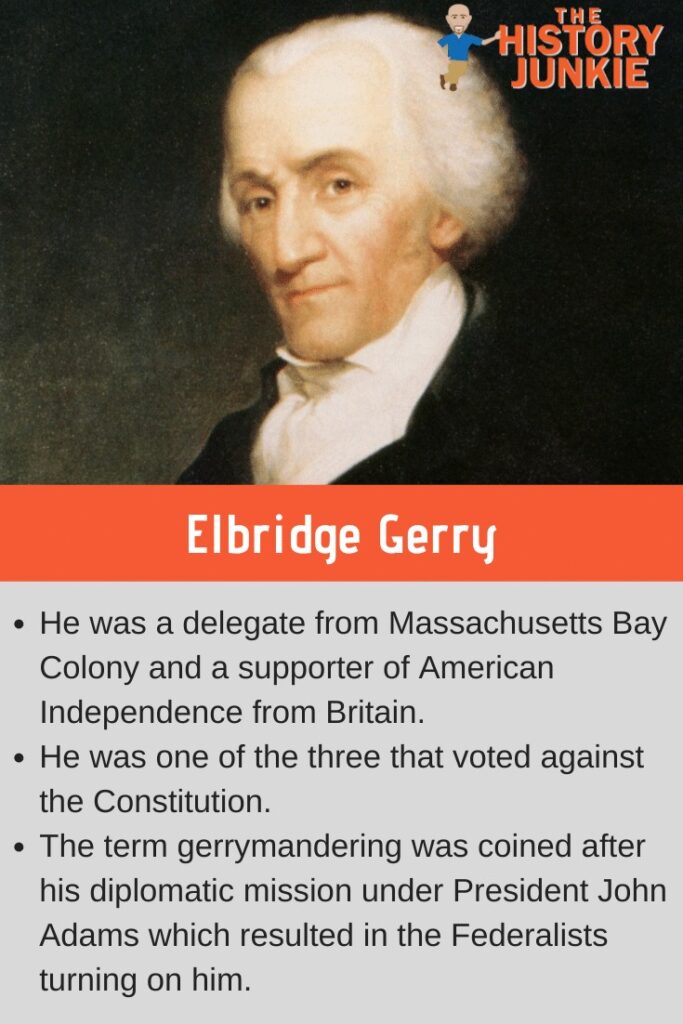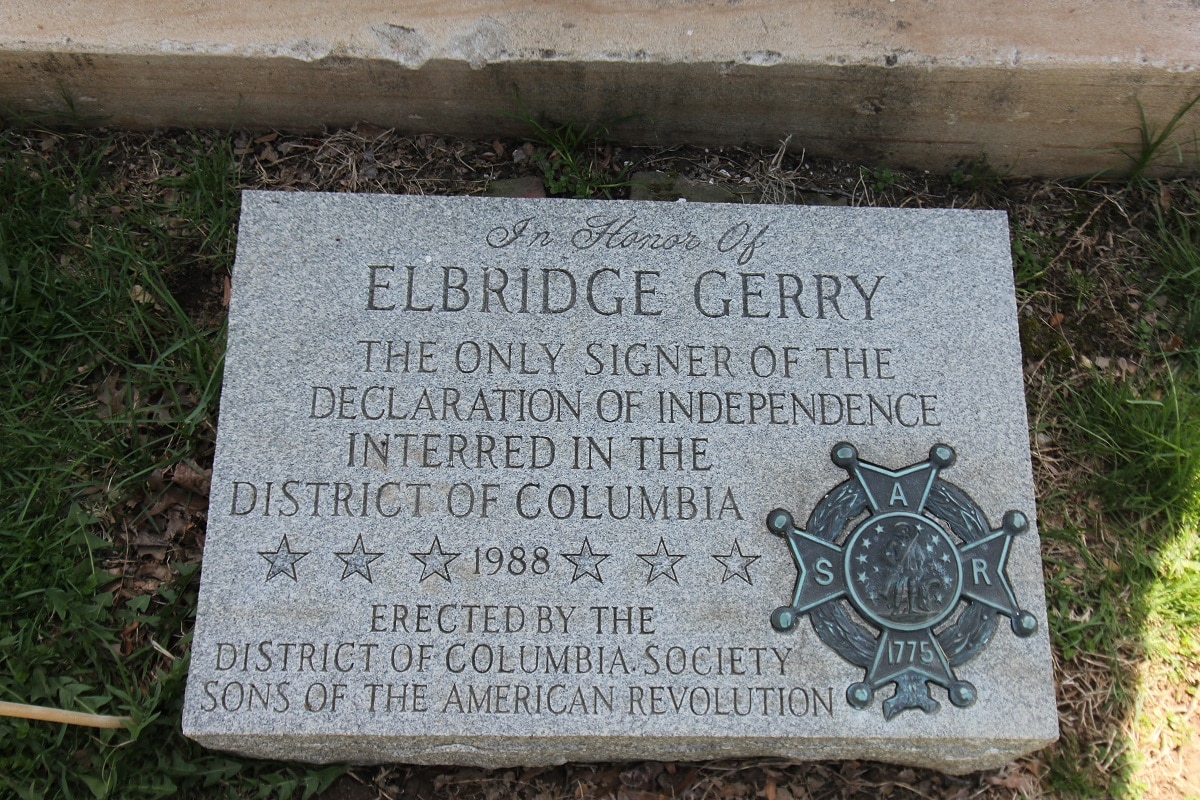Elbridge Gerry, a signer of the Declaration of Independence, was a Massachusetts Bay Colony delegate to the Continental Congress from 1776 - 1780, and he served a second time from 1783 - 1785. In 1787, he attended the Constitutional Convention and voted against it.

He was fearful that the federal government would have too much power over the states. Although he opposed it, he would serve in the U.S. House and in Congress from 1789 - 1793.
Gerry was similar to George Washington in that he was not in favor of political parties and supported ideas from both.
He eventually did align himself with the Democratic-Republican party.
Early Life

Elbridge Gerry was born July 17, 1744, in Marblehead, Massachusetts Bay, to Thomas and Elizabeth Gerry. His father was a successful merchant. His parents had eleven children, with only five surviving to adulthood.
Shortly before turning 14, he was accepted into Harvard College. By the age of 18, he received a bachelors degree and, by 21, had a master's degree.
After graduating from college, he entered his father's merchant business. By the time of the American Revolution, Gerry was one of the wealthiest men in New England.
He was opposed to the various acts that the British passed in order to pay for the French and Indian War. During this time, he developed relationships with Samuel Adams, John Adams, and Mercy Otis Warren.
In May of 1772, he was elected into the General Court of Massachusetts Bay Colony. He established a Committee of Correspondence in Marblehead and a hospital for smallpox inoculation.
He left politics and then re-entered it in 1774 after the Boston Port Act. His service was interrupted due to his father's ailing health. After his father passed away, Gerry was elected into the First Continental Congress, but he refused his appointment since he was still grieving the loss of his father.
American Revolution
Gerry served in the Second Continental Congress and was an early supporter of independence from Britain.
Throughout the war, he played a large role in financing the war, acquiring subsidies from Spain, sending ships to many of the ports on the American coast, and raising privateers to raid the British.
Gerry was a member of the Conway Cabal. A group of congressmen that were dissatisfied with the performance of George Washington.
Later, he denied his membership and openly criticized one of Washington's critics, Thomas Mifflin. His involvement in the Cabal is unclear.
Later Years
During the Constitutional Convention, Gerry was an advocate for the division of Federal and State governments.
He would be one of only three that voted against the Constitution. George Mason and Edmund Randolph were the others. His vote against was rooted in his belief of a small federal government.
Although he was opposed to Shay's Rebellion that took place in 1786 - 87, the pro-Constitutionalists wrote scathing articles about him, calling him a Shay-site. Gerry's main problem with the Constitution was the lack of a Bill of Rights.
Gerry was nominated to run for governor of Massachusetts but lost to the popular Federalist John Hancock.
By 1789, Gerry had recanted his opposition to the Constitution.
Gerry never associated himself with a party until the 1800s. He supported what he believed to be good ideas regardless of the party.
He was in favor of Alexander Hamilton's report on public credit and maintained a good relationship with Thomas Jefferson. He served on a diplomatic mission for John Adams, which led to the Federalists turning on him.
After that event, he formally joined the Democratic-Republican Party.
He was elected Governor of Massachusetts and served as Vice-President to James Madison.
He died in late November 1814 and was buried in Washington, D.C. He is the only signer to be buried in the nation's capital.

